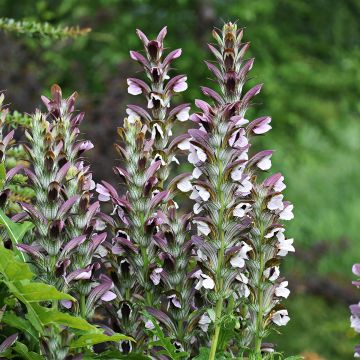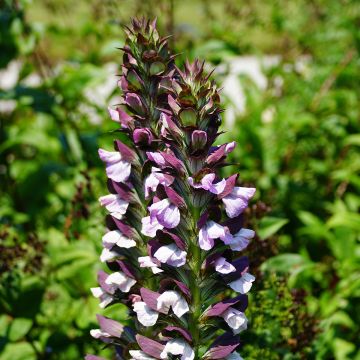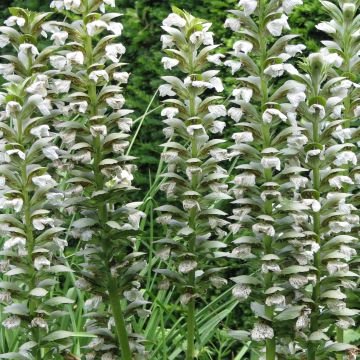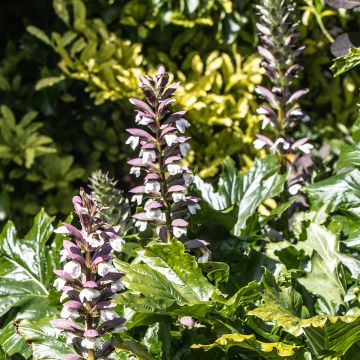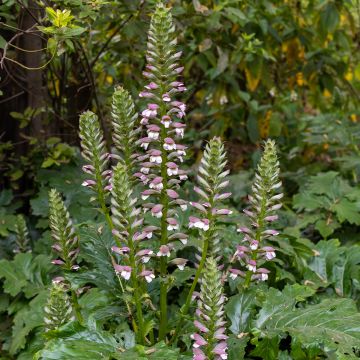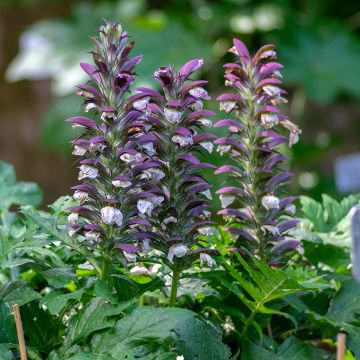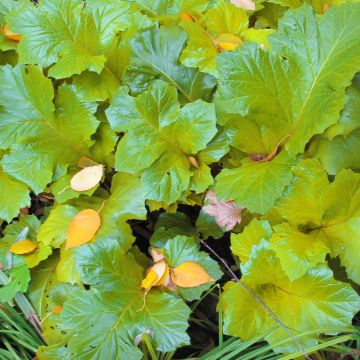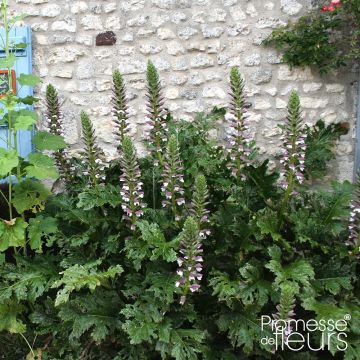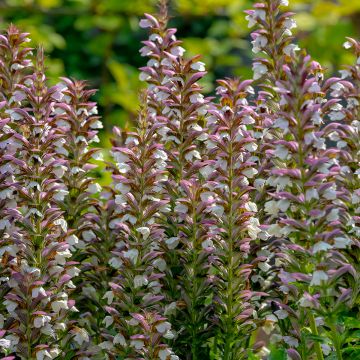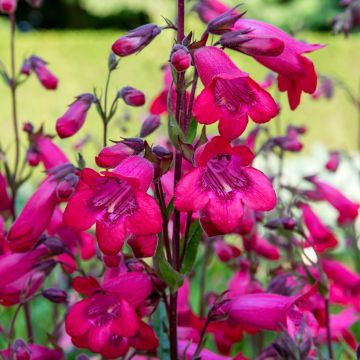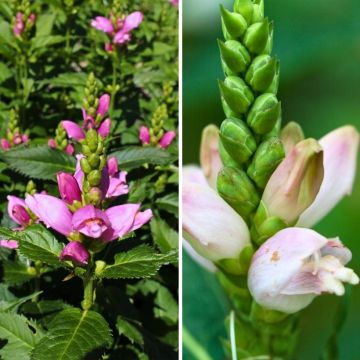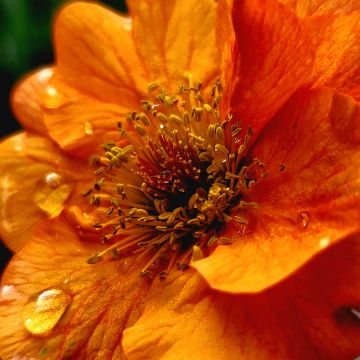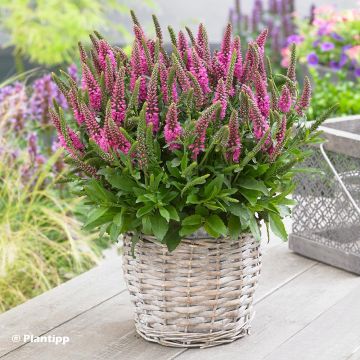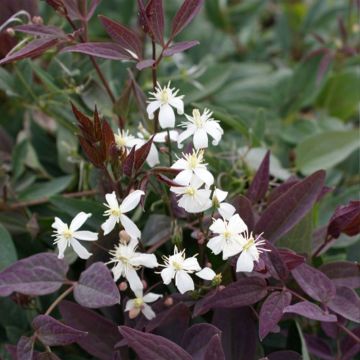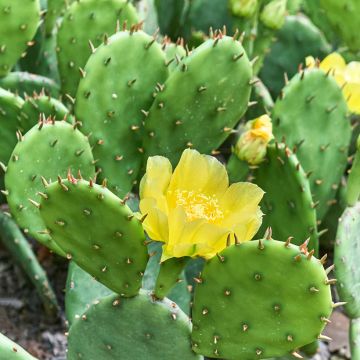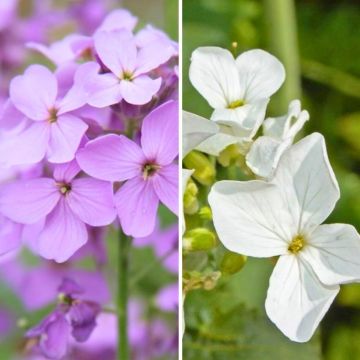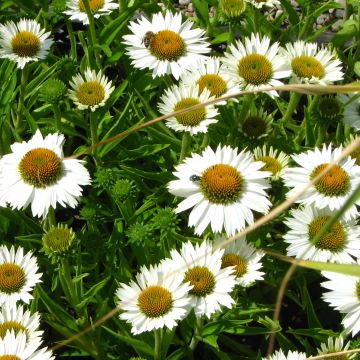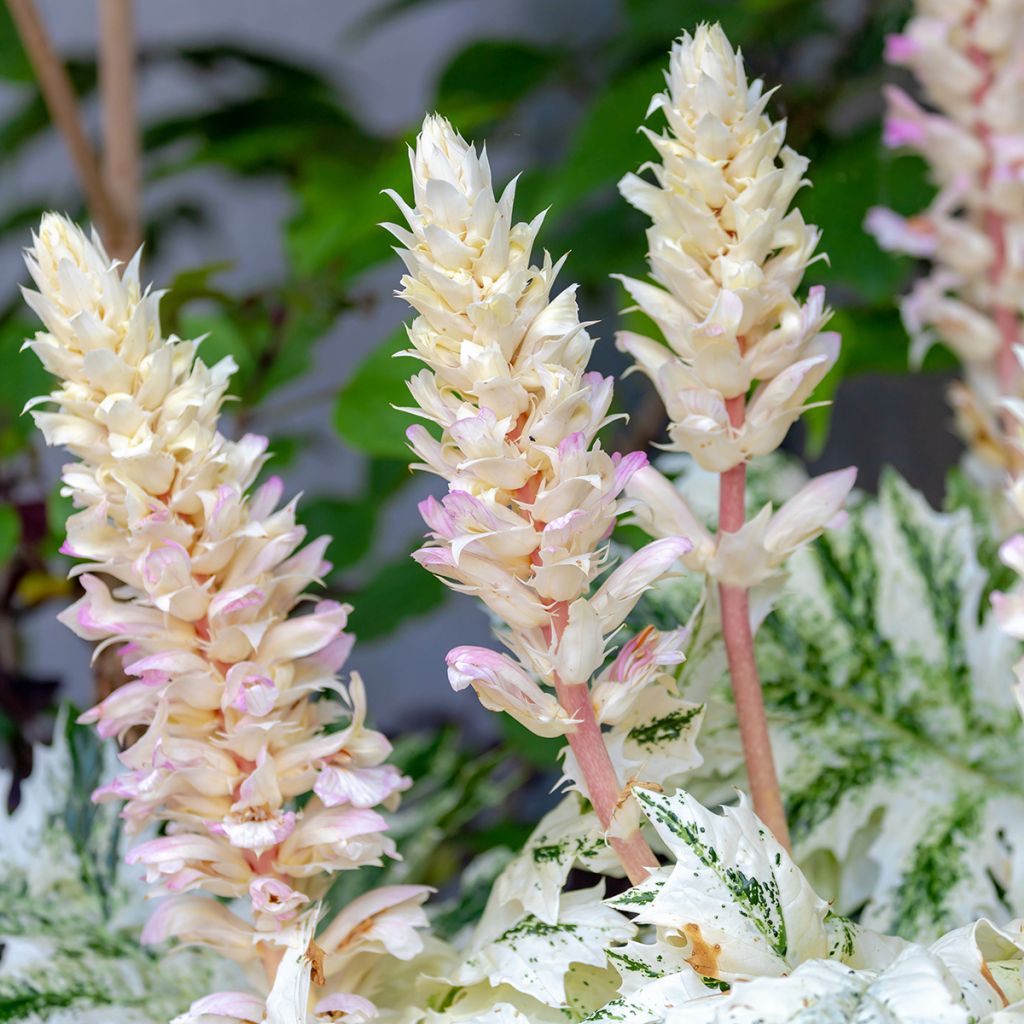

Acanthus mollis Tasmanian Angel - Bear's Breech
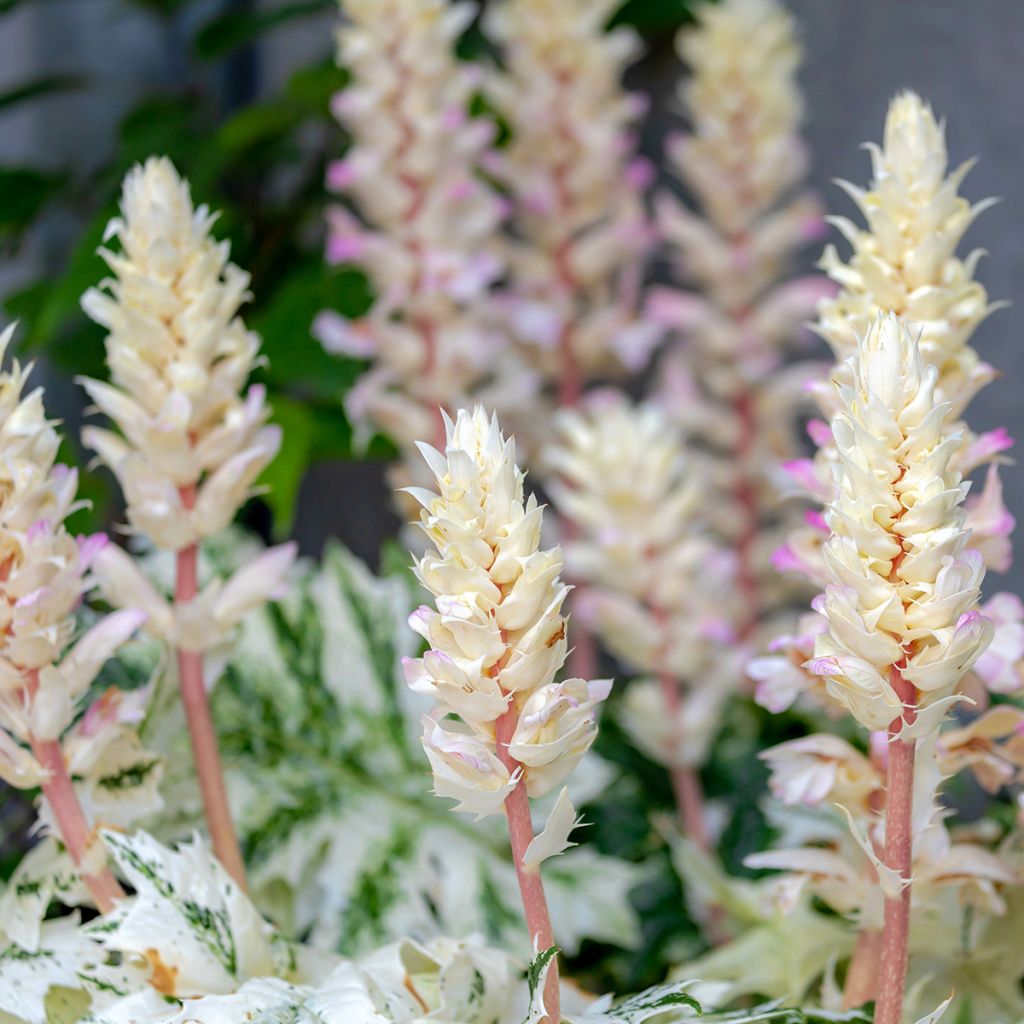

Acanthus mollis Tasmanian Angel - Bear's Breech
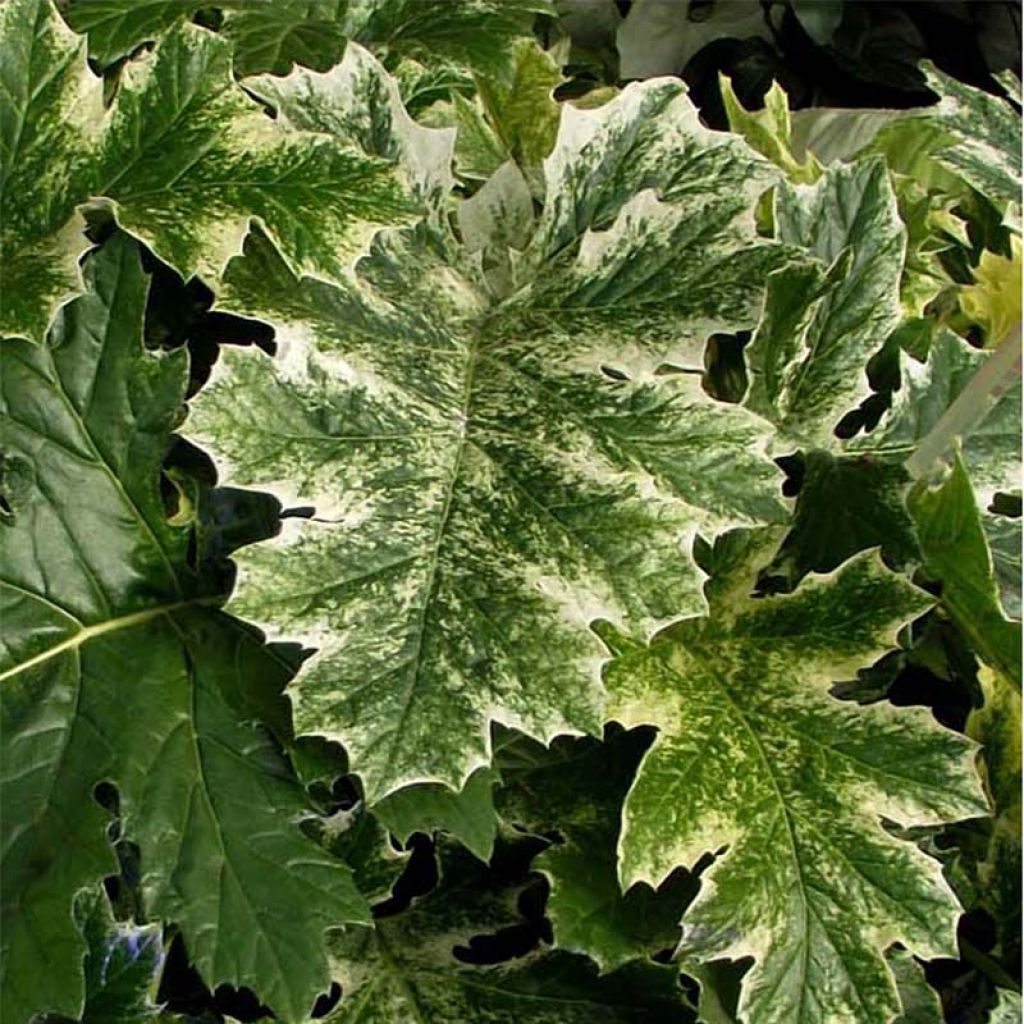

Acanthus mollis Tasmanian Angel - Bear's Breech
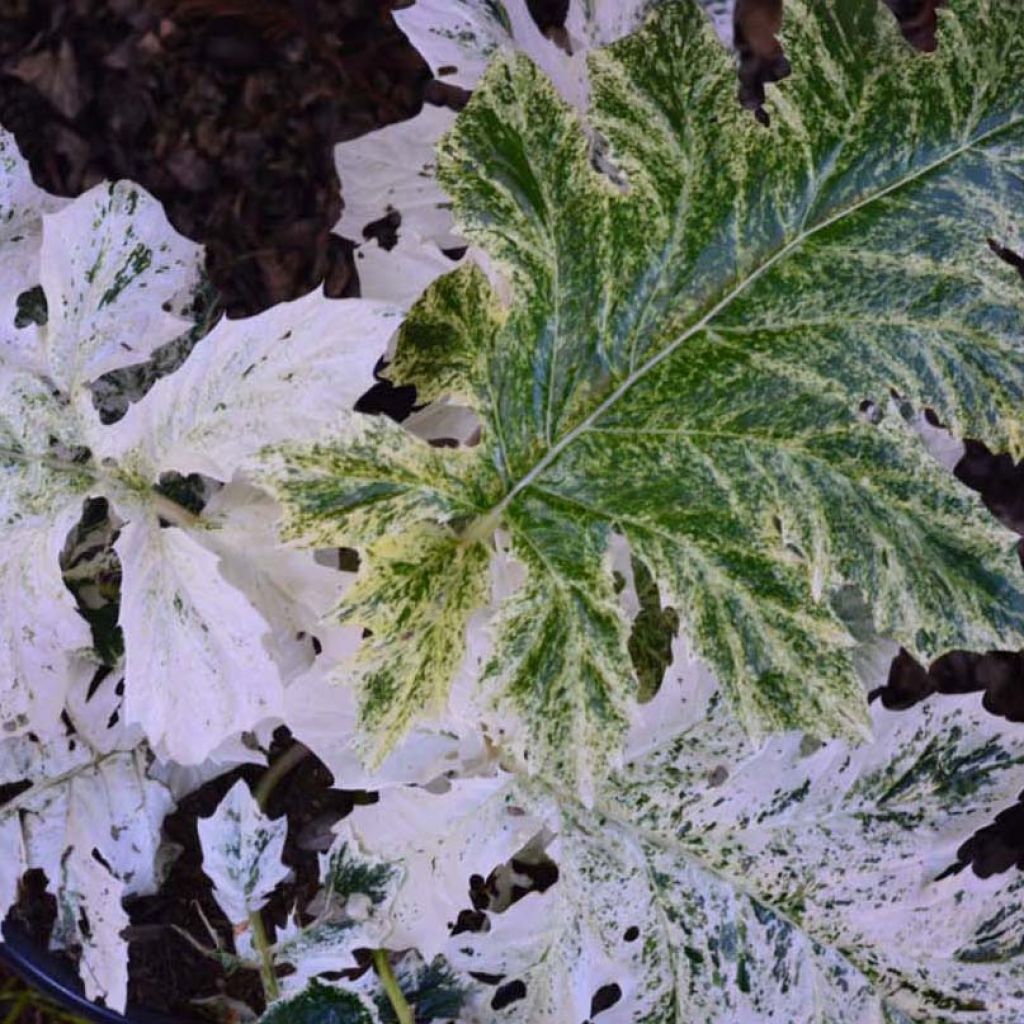

Acanthus mollis Tasmanian Angel - Bear's Breech
Acanthus mollis Tasmanian Angel - Bear's Breech
Acanthus mollis Tasmanian Angel
Bear's Breeches
This item cannot be shipped to the selected country
Delivery charge from €5.90
More information
Schedule delivery date,
and select date in basket
This plant carries a 12 months recovery warranty
More information
We guarantee the quality of our plants for a full growing cycle, and will replace at our expense any plant that fails to recover under normal climatic and planting conditions.
From €5.90 for pickup delivery and €6.90 for home delivery
Express home delivery from €8.90.
Does this plant fit my garden?
Set up your Plantfit profile →
Description
The Acanthus mollis Tasmanian Angel is a fantastic variety of the Acanthus mollis discovered in a garden in Tasmania. Shorter than its Mediterranean cousin, it is, however, even more ornamental: its beautifully cut foliage quickly changes from yellow to almost white in spring, gradually variegating to dark green until summer, while stout pinkish flower spikes emerge carrying numerous flowers hidden by pearly bracts, of a magnificent cream-white pink. This superb perennial is perfect for brightening the garden's slightly shaded areas, adding a touch of exoticism. It also allows for fantastic flowering pots for the terrace or balcony, preferably in partial shade.
Acanthus mollis comes from the Greek 'akhantha', thorn, and the Latin 'mollis', which means soft and gentle. A name that embodies the duality of this plant, both soft and thorny. It is a herbaceous perennial plant of the Acanthaceae family, native to the clear undergrowth of Mediterranean regions. The shrub spreads through large fleshy roots, reserve organs allowing it to withstand summer drought, resting underground. Very tolerant of soil, the Acanthus adapts well to limestone but does not appreciate compact and clayey soils that are very wet and cold in winter. However, this well-established shrub can withstand brief frosts of around -12°C (10.4°F) to -15°C in well-drained soil.
The 'Tasmanian Angel' variety distinguishes itself with slightly less growth, with white variegated foliage and flowers devoid of the typical green colour. It is a dense, upright, bushy plant that can form a large shrub 60-70 cm (24-28in) tall for the foliage and 70 cm (1 and 28in) wide. In spring, it produces pale yellow young leaves. They then unfold into long leaves with prominent white markings. As summer approaches, the lamina slowly turns dark green. They are slightly shiny, deeply cut, with lobes that are not thorny but toothed. In June-July (May-June in warmer climates), while the foliage tends to deteriorate, tall flower stalks appear, reaching 1 m (3ft) or 1.20 m (4ft) above the ground. They bear dense floral spikes reaching 30 to 40 cm (12 to 16in). These stout spikes gather large crumpled flowers with two lips. Each flower is topped with a cream-white spiny bract tinged with pink, giving the flower heads a pastel appearance in soft pink and white. The flowering attracts large pollinating insects, such as bumblebees or large black bees. The fruits are shiny capsules containing large seeds. The foliage completely disappears after flowering if the summer is dry, reappearing in autumn and remaining evergreen throughout the winter in not-too-cold climates.
Although not the hardiest of the genus, the 'Tasmanian Angel' Acanthus is easy to grow and thrives where it likes, in the shade of not-too-dry undergrowth during flowering. This plant with antique charm loves the base of old walls, the proximity of a small stone staircase, in partial shade. It is a beautiful border plant in cool climates, in the company of the green-flowered rose and the 'Snow Thimble' foxglove. In a dry garden, it is a robust, reliable perennial that pairs well with boxwood balls, Lobelia laxiflora, and Glacier Blue Spurge. It is ideal for adding verticality and volume to perennial plant borders. It is also a beautiful focal plant placed in a natural setting or a large container on the patio.
Report an error about the product description
Acanthus mollis Tasmanian Angel - Bear's Breech in pictures


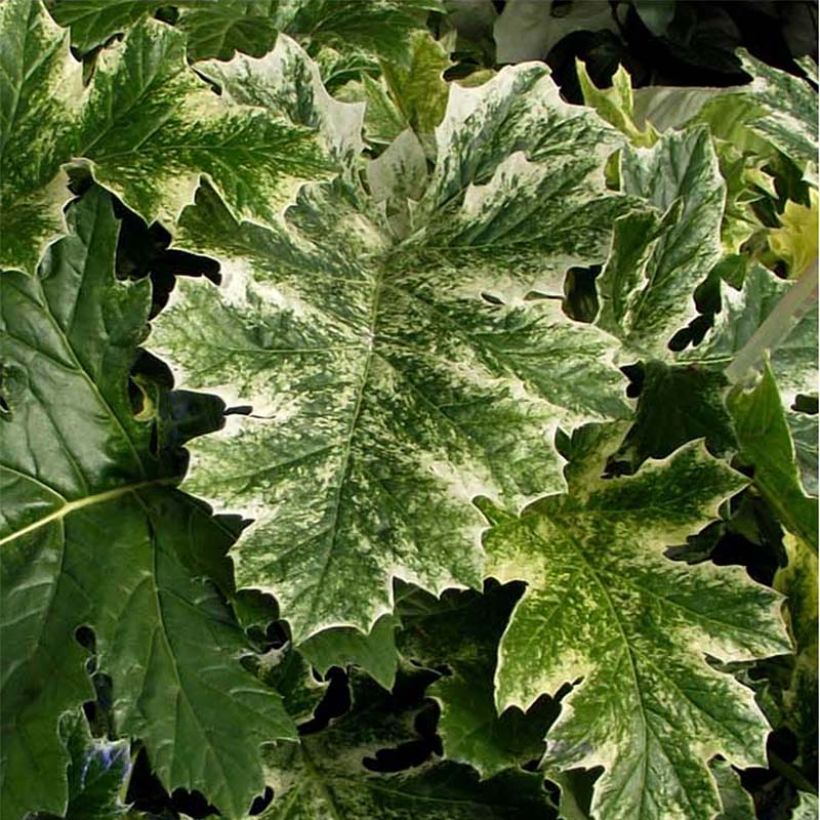

Flowering
Foliage
Plant habit
Botanical data
Acanthus
mollis
Tasmanian Angel
Acanthaceae
Bear's Breeches
Oceania
Other Acanthus
Planting and care
The Acanthus mollis Tasmanian Angel is hardy up to approximately -15°C (5°F). This plant grows quickly and adapts easily to all soil types, even clayey and dry soil. During autumn and spring, it prefers cool, well-drained and reasonably fertile soil and can tolerate summer drought during its vegetative rest period. It accepts limestone well. This species prefers a sunny exposure sheltered from the wind but can also tolerate partial shade, where it will grow taller but be less floriferous. Attention, like all Acanthus plants, does not like being moved. If you don't want it to take over, cut the flower stalk as soon as fruiting is finished or remove the fruits: be careful of the spines; it is advisable to wear gloves! Like all other Acanthus plants, they are susceptible to powdery mildew and prone to attacks from slugs and snails. If you let this variety self-seed, you will get non-variegated foliage plants, similar to the wild type, which will quickly take over.
Planting period
Intended location
Care
-
, onOrder confirmed
Reply from on Promesse de fleurs
Summer flowering perennials
Haven't found what you were looking for?
Hardiness is the lowest winter temperature a plant can endure without suffering serious damage or even dying. However, hardiness is affected by location (a sheltered area, such as a patio), protection (winter cover) and soil type (hardiness is improved by well-drained soil).

Photo Sharing Terms & Conditions
In order to encourage gardeners to interact and share their experiences, Promesse de fleurs offers various media enabling content to be uploaded onto its Site - in particular via the ‘Photo sharing’ module.
The User agrees to refrain from:
- Posting any content that is illegal, prejudicial, insulting, racist, inciteful to hatred, revisionist, contrary to public decency, that infringes on privacy or on the privacy rights of third parties, in particular the publicity rights of persons and goods, intellectual property rights, or the right to privacy.
- Submitting content on behalf of a third party;
- Impersonate the identity of a third party and/or publish any personal information about a third party;
In general, the User undertakes to refrain from any unethical behaviour.
All Content (in particular text, comments, files, images, photos, videos, creative works, etc.), which may be subject to property or intellectual property rights, image or other private rights, shall remain the property of the User, subject to the limited rights granted by the terms of the licence granted by Promesse de fleurs as stated below. Users are at liberty to publish or not to publish such Content on the Site, notably via the ‘Photo Sharing’ facility, and accept that this Content shall be made public and freely accessible, notably on the Internet.
Users further acknowledge, undertake to have ,and guarantee that they hold all necessary rights and permissions to publish such material on the Site, in particular with regard to the legislation in force pertaining to any privacy, property, intellectual property, image, or contractual rights, or rights of any other nature. By publishing such Content on the Site, Users acknowledge accepting full liability as publishers of the Content within the meaning of the law, and grant Promesse de fleurs, free of charge, an inclusive, worldwide licence for the said Content for the entire duration of its publication, including all reproduction, representation, up/downloading, displaying, performing, transmission, and storage rights.
Users also grant permission for their name to be linked to the Content and accept that this link may not always be made available.
By engaging in posting material, Users consent to their Content becoming automatically accessible on the Internet, in particular on other sites and/or blogs and/or web pages of the Promesse de fleurs site, including in particular social pages and the Promesse de fleurs catalogue.
Users may secure the removal of entrusted content free of charge by issuing a simple request via our contact form.
The flowering period indicated on our website applies to countries and regions located in USDA zone 8 (France, the United Kingdom, Ireland, the Netherlands, etc.)
It will vary according to where you live:
- In zones 9 to 10 (Italy, Spain, Greece, etc.), flowering will occur about 2 to 4 weeks earlier.
- In zones 6 to 7 (Germany, Poland, Slovenia, and lower mountainous regions), flowering will be delayed by 2 to 3 weeks.
- In zone 5 (Central Europe, Scandinavia), blooming will be delayed by 3 to 5 weeks.
In temperate climates, pruning of spring-flowering shrubs (forsythia, spireas, etc.) should be done just after flowering.
Pruning of summer-flowering shrubs (Indian Lilac, Perovskia, etc.) can be done in winter or spring.
In cold regions as well as with frost-sensitive plants, avoid pruning too early when severe frosts may still occur.
The planting period indicated on our website applies to countries and regions located in USDA zone 8 (France, United Kingdom, Ireland, Netherlands).
It will vary according to where you live:
- In Mediterranean zones (Marseille, Madrid, Milan, etc.), autumn and winter are the best planting periods.
- In continental zones (Strasbourg, Munich, Vienna, etc.), delay planting by 2 to 3 weeks in spring and bring it forward by 2 to 4 weeks in autumn.
- In mountainous regions (the Alps, Pyrenees, Carpathians, etc.), it is best to plant in late spring (May-June) or late summer (August-September).
The harvesting period indicated on our website applies to countries and regions in USDA zone 8 (France, England, Ireland, the Netherlands).
In colder areas (Scandinavia, Poland, Austria...) fruit and vegetable harvests are likely to be delayed by 3-4 weeks.
In warmer areas (Italy, Spain, Greece, etc.), harvesting will probably take place earlier, depending on weather conditions.
The sowing periods indicated on our website apply to countries and regions within USDA Zone 8 (France, UK, Ireland, Netherlands).
In colder areas (Scandinavia, Poland, Austria...), delay any outdoor sowing by 3-4 weeks, or sow under glass.
In warmer climes (Italy, Spain, Greece, etc.), bring outdoor sowing forward by a few weeks.

































